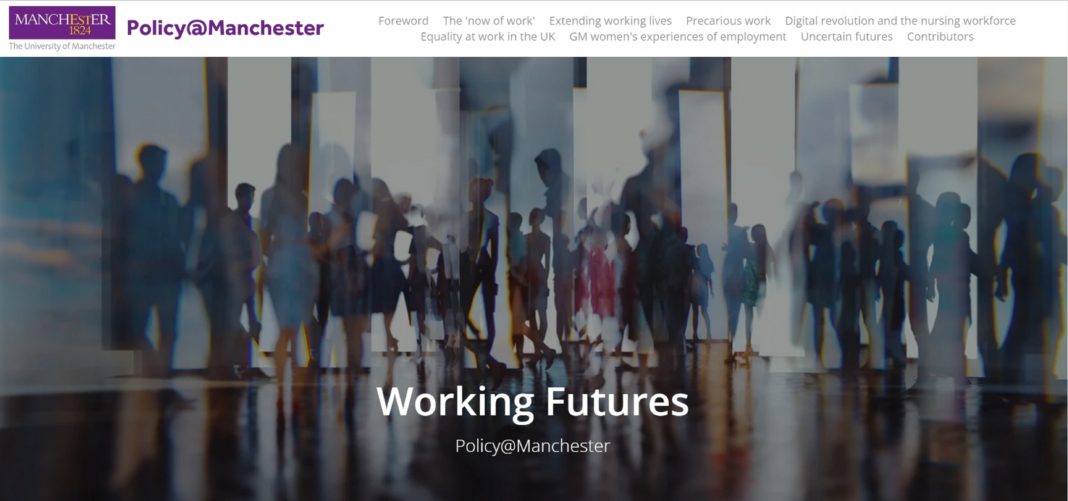The changing nature of work – as the country continues its recovery from the COVID–19 pandemic against a backdrop of an ageing workforce and increasing automation – is explored in a new online report from University of Manchester experts.
Working Futures, produced by the University’s policy engagement unit Policy@Manchester, is a collection of seven articles providing research-based evidence and ideas to shape the future of work in the UK.
The need to balance productivity, innovation and economic growth with access to fair employment and working conditions are just some of the areas examined by academics, alongside the drive for equity, opportunity and decent working conditions.
The publication includes a foreword from Naomi Clayton, Deputy Director at Learning and Work Institute, who shines a light on growing labour market inequalities that have contributed to concerns about the quality of work for many, coupled with limited progression from low pay.
“Ensuring labour market inequalities don’t widen further and more ‘good jobs’ are available to more people means developing a comprehensive, cross-government strategy for good work with employers and trade unions,” she writes.
“A strategy that creates good jobs – jobs that pay at least enough to meet everyday needs, provide stability and security, with opportunities for development and progression – requires looking beyond the minimum wage to the reform of employment laws, sick pay and the role of sectoral collective bargaining.
“Policymakers should also explore how innovation and technological developments can be shaped, in part through regulation, to ensure as many workers benefit as possible.”
Ms Clayton adds: “The contributions in this Policy@Manchester publication consider the policy implications of a range of these issues. The articles consider the impact of changes in the labour market from a range of different perspectives – and, crucially, present evidence-led ideas about how we might address challenges and tackle inequalities.”
Professor Cecilia Wong, Academic Co-Director of Policy@Manchester, said: “Working Futures is the product of many months of collaborative effort from our magnificent authors supported by the dedicated Policy@Manchester team.
“It is brimming with robust research, expert analysis and clear recommendations across a broad and shifting employment policy landscape, which arguably does not receive the due attention it merits from policymakers and political decision-makers.
“As its title indicates, Working Futures has a deliberate emphasis on suggested future pathways for policy in this field. But it begins with a forthright piece from my colleagues Mat Johnson and Eva Herman on the ‘now of work’ with a call for tangible improvements to the working lives of those in frontline roles that keep our communities fed, educated, safe, connected and cared for.
“It is an excellent compendium of academic thought worthy of serious consideration from those with the power to effect positive change.”
Working Futures can be read free of charge on the Policy@Manchester website.









